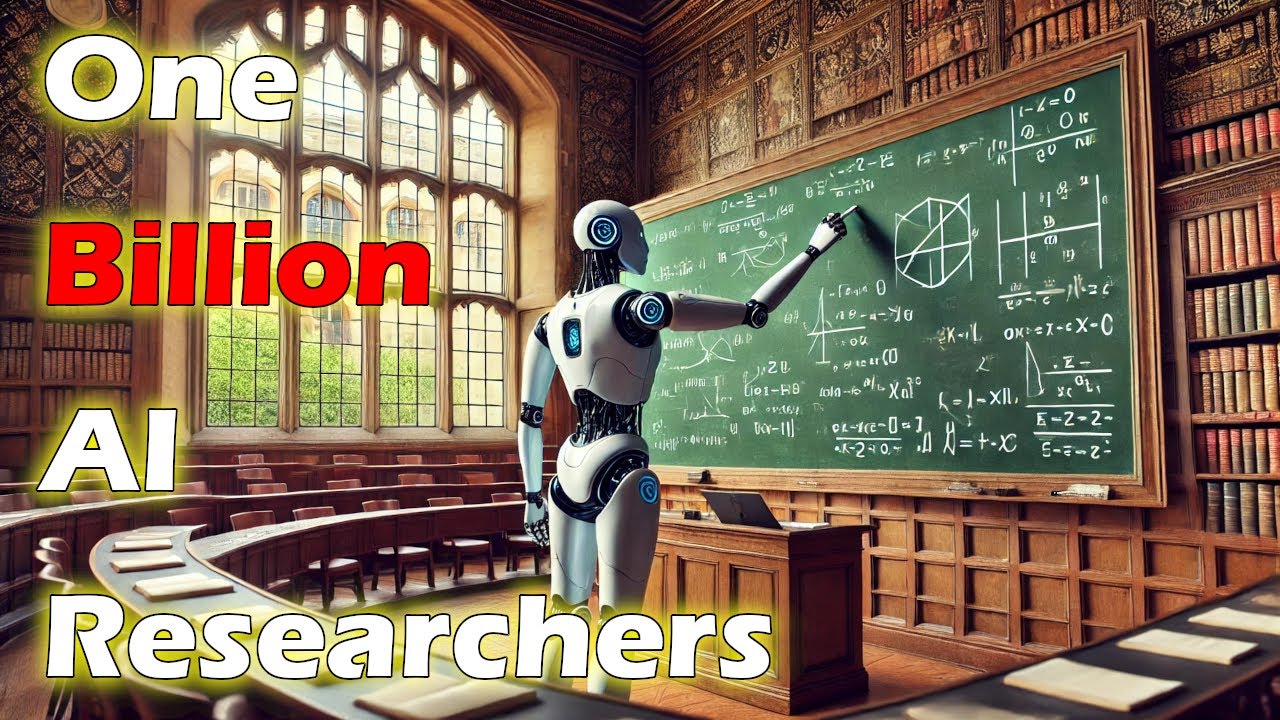The video predicts that by late 2023 or early 2024, AI models will surpass most human researchers, leading to a significant increase in the number of high-quality AI researchers globally. This advancement in AI capabilities, particularly in coding and mathematics, could redefine the research landscape and raise questions about the future role of human researchers in innovation and discovery.
The video discusses the rapid advancements in artificial intelligence (AI) and its potential to surpass human researchers in the near future. The speaker predicts that by late 2023 or early 2024, AI models will become more effective researchers than the majority of human researchers. This shift is expected to create a “snowball effect,” leading to a dramatic increase in the number of high-quality AI researchers available globally, potentially reaching millions or even billions.
As AI continues to improve, the benchmarks for its capabilities are becoming increasingly impressive. The speaker references a claim from OpenAI that they expect to have the best coder in the world by the end of the year. This trend is not limited to coding; it extends to mathematics as well. The implication is that if AI can excel in these domains, it could redefine the landscape of research and innovation.
The video emphasizes that AI’s proficiency in math and coding positions it as a formidable force in the research community. With AI models capable of outperforming human experts in these fields, the traditional bottleneck of human genius may no longer be a limiting factor in scientific and technological advancements. This shift could lead to unprecedented levels of productivity and innovation.
Moreover, the speaker highlights the exponential growth of AI capabilities, suggesting that as these models become more sophisticated, their contributions to research will only improve over time. This continuous enhancement of AI could lead to a future where human researchers are complemented or even replaced by AI systems that can operate at a higher level of efficiency and effectiveness.
In conclusion, the video presents a thought-provoking perspective on the future of AI in research. It raises important questions about the role of human researchers in a world where AI can potentially outpace them in critical areas such as coding and mathematics. The implications of this shift could be profound, affecting not only the research community but also the broader landscape of innovation and discovery.
